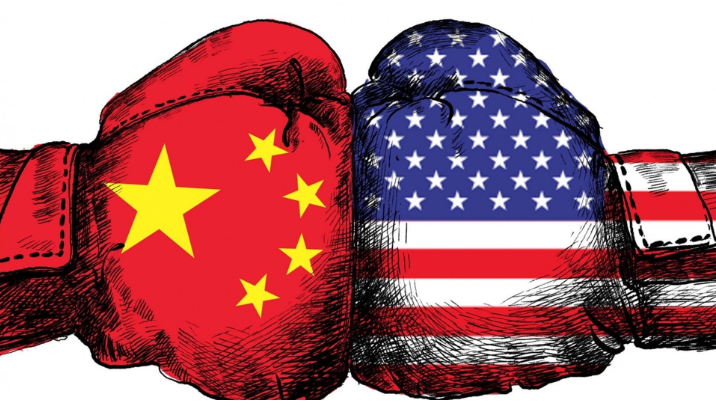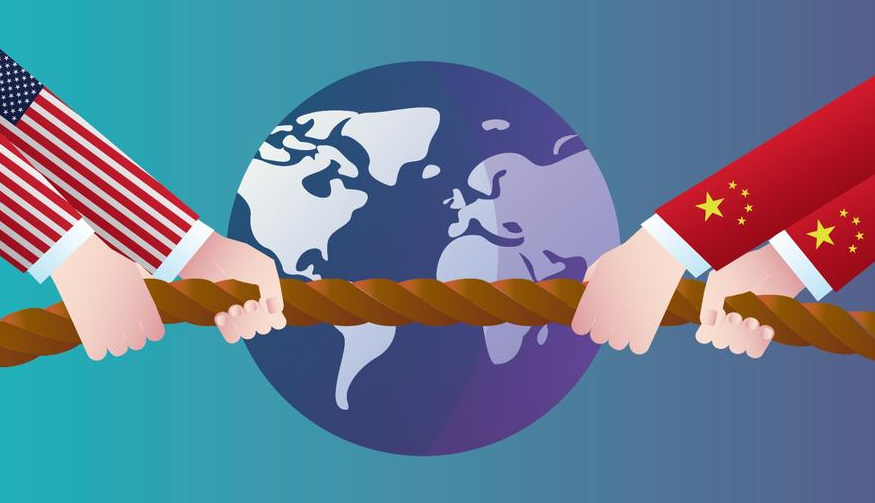Be your Logistics Department in China
Customized logistics solutions, your logistics expert in China
Customized logistics solutions, Shipping from China to the World
Tel:+8613424475220 Email:info@viputrans.com 
At the beginning of 2025,
US President Trump once again made waves in the field of international trade, signing an executive order to impose a 10% tariff on goods imported from China and cancel the long-standing duty-free treatment for packages worth less than $800.
These two measures have attracted widespread attention and controversy in the international community and the United States.

According to the executive order signed by Trump, the United States will impose a 10% tariff on all goods imported from China on the basis of existing tariffs.
Trump said that this move is consistent with the "protectionist measures" he supports and is aimed at protecting domestic industries and jobs in the United States.
However, this decision has been widely opposed both in the international community and in the United States.
Spokespersons of the Chinese Ministry of Foreign Affairs have previously stated their position many times that there are no winners in trade wars and tariff wars, and China will firmly safeguard its national interests.
Spokespersons of the Chinese Ministry of Commerce also pointed out that the tariff measures are not conducive to both China and the United States and the world as a whole.
In addition to imposing tariffs on Chinese imports, Trump's executive order also canceled the "minimum" tariff exemption for small-value goods worth less than $800.
This policy has enabled a large number of low-value goods to enter the US market duty-free, which is undoubtedly a great benefit to Chinese cross-border e-commerce companies.
Through a large number of small parcel direct mail models, Chinese cross-border e-commerce companies have rapidly expanded their market share in the US and enjoyed a clear price advantage.
However, with the cancellation of the "minimum" tariff exemption, these companies will face higher tariff costs and logistics costs, and their global competitiveness will also be weakened.
Trump's move not only had a direct impact on Chinese cross-border e-commerce companies, but also affected the domestic e-commerce industry and consumers in the United States.
According to Zhitong Finance APP, the cancellation of tax-free treatment for packages below $800 will affect the sales of cheap online retailers such as Temu and Shein, and may weaken the global competitiveness of Chinese e-commerce.
At the same time, American consumers will also face rising prices and fewer choices.
It is worth noting that the executive order signed by Trump this time also involves a 25% tariff on goods from Mexico and Canada, including a 10% tariff on Canadian energy products.
However, at the node when the new tariff rules came into effect, Trump changed his mind and suspended the tariff increase for the two countries, leaving a month for negotiations.
This move was interpreted by the outside world as a strategic means adopted by Trump in international trade negotiations.

China has taken corresponding countermeasures against Trump's series of measures. At the same time, domestic companies and consumers in the United States are also actively seeking countermeasures.
Some cross-border e-commerce companies have begun to adjust their business models, strengthen overseas warehouse construction and inventory management to reduce the impact of tariffs and logistics costs.
American consumers may face more cautious shopping choices and the reality of rising prices.
The executive order signed by Trump will undoubtedly have a profound impact on the trade relations between China and the United States.
In the current context of global economic integration and trade liberalization, the increase in tariffs and trade barriers will undoubtedly hinder the development of international trade and the process of economic globalization.
Therefore, China and the United States should strengthen communication and cooperation to jointly maintain the international trade order and the stability and development of the global economy.
The executive order signed by Trump to impose a 10% tariff on goods imported from China and cancel the duty-free treatment of packages below $800 will have a broad and far-reaching impact on the trade relations between China and the USA, -
-the e-commerce industry and consumers. This move has not only exacerbated international trade tensions, but also aroused global attention and discussion.
China and the United States should strengthen cooperation and communication, jointly respond to global challenges, and promote the prosperity and development of international trade and the global economy.

(1) Temu and Shein: These two Chinese cross-border e-commerce platforms, which focus on low-price strategies, are highly dependent on the "small package tax exemption" policy.
After the tax exemption is cancelled, the tariff cost of a single package may increase by US$3-7.5 (calculated at a tax rate of 10%-25%), directly eating up their 30% gross profit.
For example, a dress originally priced at US$12 may increase to US$15 after the tax is added, narrowing the price gap with Amazon's own brand and weakening its competitiveness.
(2) Logistics efficiency declines: The customs clearance process is extended to 3-5 days, and the waiting time for consumers doubles, which may lead to the loss of orders to local platforms such as Amazon.
(1) Turning to overseas warehouses and semi-trusteeship model: To avoid tariffs, Temu launched a "semi-trusteeship model" to ship high-value goods to US warehouses in advance,
increasing the value of each item to more than US$800 to apply the original tax-free rules, but it has to bear higher warehousing and supply chain costs. Shein set up a distribution center in the United States to shorten the logistics chain.
(2) Subsidy and price war pressure: Temu may maintain low prices by subsidizing the tariff difference, but if the daily order volume is 5 million pieces, the average cost may reach US$15 million, exacerbating losses.
(1) Amazon's opportunities and challenges: Amazon's low-price platform Haul (product prices are all below US$20) may benefit from the weakening price advantage of Chinese platforms,
but it also imports goods through the tax-free mechanism, and some businesses are also facing cost pressure. In addition, Amazon is accelerating the layout of local warehousing and supply chains to further consolidate its market position.
(2) Expansion into emerging markets: Temu and Shein are accelerating their expansion into markets such as Europe and the Middle East.
However, the average customer spending in these regions is only one-third of that in the United States (e.g., about $10 in the Middle East). It is difficult to fill the gap in the U.S. market in the short term.
The new regulations require platforms to provide customs with full-link data on goods. Temu needs to invest hundreds of millions of yuan to upgrade its IT system and deal with tax audit risks.
Previously, Temu even changed its packaging to reduce the risk of review.
(1) Limited choices for American consumers: Low-priced goods that low-income groups rely on are facing price increases, and some demand may shift to the second-hand market or local low-priced retailers.
(2) Restructuring of the global supply chain: The policy has accelerated the transformation of cross-border e-commerce from the "direct mail model" to the "overseas warehouse + localized operation",
promoting companies to optimize supply chain resilience, but also raising the industry's entry threshold.
This tariff adjustment not only directly impacts the profit model of China's cross-border e-commerce, but also forces the industry to rebalance growth and cost control, accelerating global layout and supply chain upgrades.
In the long run, policies may reshape the global e-commerce competition landscape and promote the transformation of low-price competition towards differentiation and compliance.
Whether you are a buyer or a seller, you must always be aware of the policy changes of cross-border e-commerce, so that you can effectively protect your own interests.
Shawn.Liao(Mr.) Phone/Wechat/Whatsapp/Skype: +8618926970495E-MAIL.:sales04@viputrans.com;
If you are interested in cross-border e-commerce transportation, you can contact our company at any time; I can provide you with excellent international transportation services.
Copyright © 2003-2026 VIPU Supply Chain Logistics Co., Ltd. | All Rights Reserved
LOGISTICS | E-COMMERCIAL FULFILLMENT | ABOUT US | CASE | NEWS | VIDEO | CONTACT US
We will find the fastest or the cheapest way for your shipment. Please specify: where from, where to, what to ship.